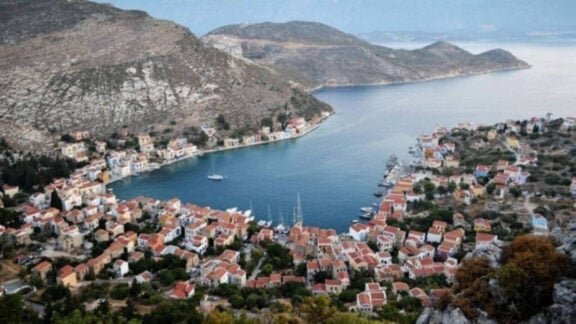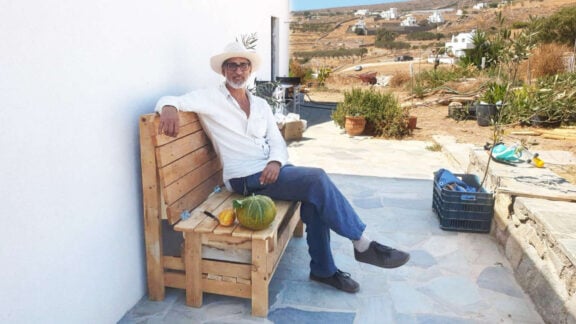The first round of Greece’s local and regional government elections produced a mixed result that allowed both the country’s governing parties, New Democracy and PASOK, as well as the main opposition, SYRIZA, to claim that they had performed well ahead of the second round on Sunday, when European Parliament elections will also be held.
SYRIZA produced surprises in the Municipality of Athens and in the most populated region of Greece, that of Attica, where its candidates performed better than had been expected. Rena Dourou, the former SYRIZA MP, is projected to take first place in the contest for the Attica governorship, pushing the more experienced Yiannis Sgouros, who was backed by PASOK and Democratic Left (DIMAR), into second place.
With around 61.4 per cent of the votes counted, Ms Dourou wins 23.6 per cent and Sgouros 22.2 per cent. Ms Dourou’s expected win is considered to be a significant achievement, even though she faces a challenge to overcome Sgouros in next Sunday’s run-off vote.
“The best goals are scored in the second round,” said SYRIZA leader Alexis Tsipras as he left the party’s headquarters.
The left wing opposition also toasted the achievement of Gavriil Sakellaridis, a virtual unknown outside the party before he became its candidate for the City of Athens. With around 73 per cent of the vote counted Sakellaridis seems to be narrowly pipped into second place by incumbent Giorgos Kaminis, supported by PASOK and DIMAR. Kaminis gets 21.2 per cent and Sakellaridis, who beat off competition from the
more experienced Aris Spiliotopoulos of New Democracy, 19.9 percent. Kaminis and Sakellaridis will face each other on Sunday.
An acrimonious battle in Piraeus saw Yiannis Moralis, an Olympiakos soccer club Vice President, leading incumbent Vassilis Michaloliakos, who is supported by New Democracy. Achileas Beos, a controversial soccer official, president and owner of a local football club in the port city of Volos, won the first round of the local mayoral contest.
The failure of conservative candidates continued in northern Greece, where the party’s candidate for the Central Macedonia Region, Yiannis Ioannidis, trailes by some distance Apostolos Tzitzikostas,, who is running as an independent even though up until recently he was a New Democracy member.
New Democracy’s candidate for Thessaloniki mayor, Stavros Kalafatis, also came in behind incumbent Yiannis Boutaris, who is supported by PASOK and DIMAR. With around 71 per cent of the vote counted Boutaris
gets 35.9 per cent and Kalafatis 26. 4 per cent.
In Thessaloniki, residents were also asked to vote on whether they were in favour of plans to privatize the local water and sewage company, EYATH. The non-binding vote was organized by local officials and opponents of the sell-off. A last minute objection from the Interior Ministry meant that the ballot boxes had to be placed outside polling centers.
Initial results indicated that as many as 98 per cent of those who took part in the vote opposed EYATH’s privatization. However, critics of the plebiscite pointed out that apart from being unofficial there were also questions about the vote’s reliability as the ballot boxes were transparent and ballot papers were not placed in envelopes.
Despite its failure to break through in the country’s major cities and regions, New Democracy will be encouraged by its stronger performances in other parts of Greece. While a number of conservatives made it into the second round of regional governorship races, SYRIZA only saw one more candidate apart from Dourou qualify for the run-off.
PASOK is also likely to take heart from the fact that a number of the high-profile candidates it backed, such as Kaminis and Boutaris, are in a strong position to win next weekend.
The coalition, as well as SYRIZA, will be concerned that neofascist Golden Dawn produced a strong showing in the Greek capital. Spokesman Ilias Kasidiaris is winning so far 16.2 per cent of the vote in the contest for the Athens mayorship, while MP Ilias Panagiotaros is on course to get over 10 per cent in the Attica region.
Most of the local and regional government outcomes will be finalised in the second round which takes place next Sunday, together with the election for the European Parliament.
It is worth noting that the absenteeism and the informal vote was particularly high in yesterday’s elections in Greece.
Source: Kathimerini, ypes








